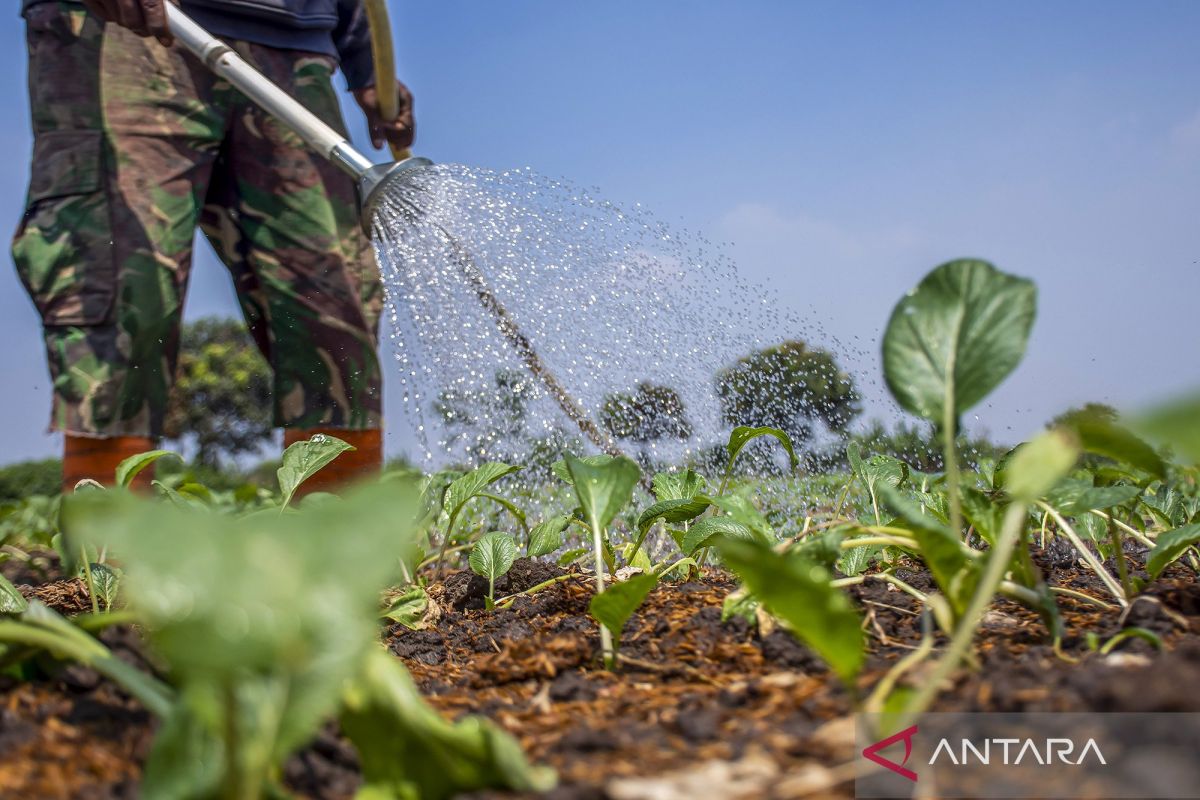
Jakarta (ANTARA) – When caring for plants at home, water needs are often a major concern, especially for those who live in hot areas or use many air conditioning devices.
This is where the question arises: is it possible to use the water dripping from the air conditioning to water the plants? This idea seems interesting because it helps reduce water waste.
However, not all plants are suitable for this type of water. There are benefits to be gained, as well as potential issues that need to be considered before using it regularly.
So is AC water clean? Read the following explanation, along with the benefits and risks of watering plants using AC water based on information gathered from various sources.
AC water is not completely hygienic
Even though it looks clear, the water dripping from the air conditioning is actually not entirely hygienic. This water is formed from vapor in the air that condenses in the cooling section of the AC, without going through a filtering or sterilization process.
Therefore, this water can carry microscopic dust, fungal spores, bacteria, and other microorganisms that attach to AC components if they are not cleaned regularly.
Furthermore, the mineral content is very low, so its properties are almost like those of pure water with a lower acidity level (pH around 5.5–6.5).
So, even though it looks clean and has no odor, AC water is not suitable for consumption as drinking water. This water can however be used for various domestic needs, for example to water plants.
Benefits of Watering Plants with AC Water
1. Does not contain chlorine and chemical additives
Because it comes from air condensation, AC water does not undergo a manufacturing process like tap water. This means there is no chlorine content, fluorideas well as other chemicals that can potentially irritate roots or damage soil structure.
This option is a safe alternative, for example, for plants sensitive to other chemicals Aglonema, dracaenaas well as some tropical and carnivorous plants.
2. Helps maintain the freshness and moisture of the leaves
The temperature of AC water is usually lower than that of normal water. When used for irrigation, this cool sensation can help plants stay fresh and reduce the risk of leaves wilting quickly. In air-conditioned rooms that tend to be dry, this water can also help increase humidity in the area around the plant, so that growing conditions are more comfortable.
3. Suitable for ornamental plants indoors
Indoor grown plants are generally more sensitive to the water content they receive. AC water, which is almost mineral-free, can help prevent white spots on leaves, a problem that often arises when using tap water that contains many dissolved substances.
In addition to this, this water also reduces the risk of salt accumulation in the planting soil in the pot. No wonder there are so many plant caretakers indoors recommends using condensed water, rainwater or distilled water to maintain optimal plant appearance and health.
4. It has a slightly acidic pH suitable for certain plants
The pH content of AC water which is in the slightly acidic range is actually beneficial to plants that require acidic soil for their growth, such as azaleasorchids and many other tropical ornamental plants.
Water with low acidity helps the absorption process of important nutrients such as manganese or iron to function more optimally. As a result, plant leaves may appear greener and healthier after regular use.
Risks of watering plants with AC water
1. Not all plants are suitable
AC water tends to be safer for home ornamental plants, but is less recommended for food plants such as vegetables or fruits. Productive plants require a more complete nutrient supply and stable soil conditions.
If you are exposed to slightly acidic water too often, the pH balance of the soil may be disturbed and the number of good microorganisms may decline. Therefore, AC water should only be used as a supplement and not as a substitute for primary irrigation water.
2. The mineral content is minimal
The almost pure nature of AC water without minerals seems good, but for plants this can be a problem. Without calcium, magnesium, or other important minerals, plant growth and development can be hindered if you rely only on AC water long-term.
Signs of nutritional deficiencies such as pale leaves or weakened stems may appear. To avoid this, you still need to apply fertilizer regularly so that the soil remains rich in nutrients.
3. It can carry contaminants from the AC system
ACs that are rarely cleaned can leave behind rust, heavy metals, or fine dust particles that dissolve into the dew that forms. These materials can accumulate in the planting medium and are toxic to roots and soil microbes that play a role in nutrient uptake.
In the long term, this can cause plant growth problems. Therefore, if you want to use AC water, make sure that the AC unit is well maintained and clean.
Read also: Rarely realized, this is an important function of the air circulation button in a car
Read also: Xiaomi launches its first AC product in Indonesia
Read also: This is the right time to do maintenance on your air conditioner
Reporter: Sean Anggiatheda Sitorus
Publisher: Alviansyah Pasaribu
Copyright © ANTARA 2025
Automatic retrieval of content, crawling or indexing by artificial intelligence on this website is strictly prohibited without written permission from ANTARA news agency.



